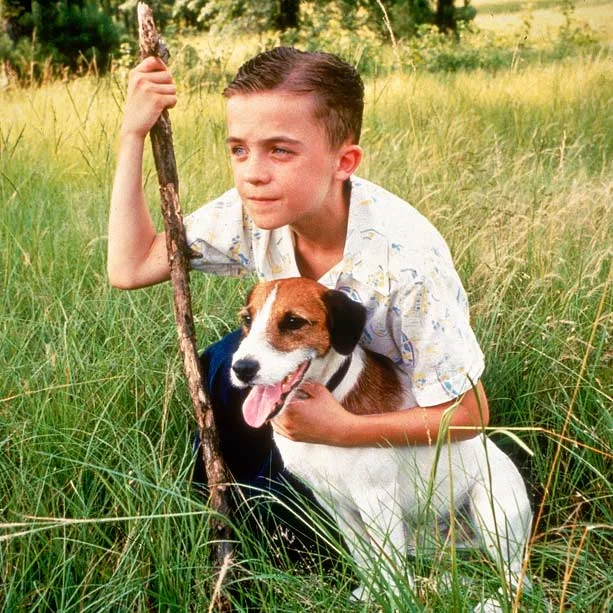The Canton Movie Museum
This article originally appeared in Portico Jackson Magazine November 2009. All rights reserved.
The Canton Movie Museum lovingly houses mementos from the days of filming My Dog Skip.
With pages of notes strewn across the desktop in front of an old typewriter, it is as if Willie Morris stepped away mere minutes ago after having typed the words, "I came across an old photograph of him not long ago...taken more than forty years before, even as a grown man, I would admit I still missed him." A faded black and white photograph of Old Skip is on display nearby.
At the corner of Union and Center, in downtown Canton, is a space affectionately referred to as the My Dog Skip Museum. The site, dedicated to Morris and the movie based on his beloved book, features props and sets used in the Canton movie shoot during the hot summer months of 1998. Just as Faulkner devotees explore Rowan Oak and Welty enthusiasts tour her Pinehurst Street home in Jackson, Morris fans can delve into a slice of his life within the walls of Canton's Movie Museum.
"There was something in the air of a small town in the Deep South then, something spooked-up and romantic, which did funny things to the imagination of its bright boys," Willie wrote in My Dog Skip. That rings true for present-day boys, girls and even adults who visit the museum. It is a time capsule, a child's world full of memories with plenty of wonder, excitement, and nostalgia literally from floor to ceiling.
"Everybody wants to touch and feel Hollywood," says Jo Ann Gordon, executive director of the Canton Film Office. Gordon is a former elementary school teacher who still nurtures her desire to educate children and the community. Gordon and her staff, including museum curator Bille Jean McMullen, do so for guests from around the world by giving guided tours through the movie museum and around the neighborhood sites where filming took place. But even more than experiencing a slice of Hollywood, visitors get to absorb romanticized Mississippi and become closer to the characters about which Willie Morris wrote.
The museum's towering green door creaks open to a world frozen in time. Each corner holds its own vignette recalling scenes from Morris' 1940s childhood superimposed on the big screen.
On one side of the museum are poignant scenes with plush stuffed Jack Russell terriers placed at important points to showcase Skip's tear-jerking visit to the veterinarian, the birthday scene with the dog carrier on the table, and even Skip's stuffed, on-screen stand-in.
Billie Jean divulges details of befriending Willie, tales of the production process and the realities of life during World War II, which make for an insightful and heartfelt tour. She points out which props were donations from local households and which are replicas, recalling, "What we did to help them — they made up lists that we put up in all the churches and around: If you have any of these items in your attic, in your storage rooms — would you donate them or either let us borrow them?"
The most exciting piece in the museum is the looming crypt of the Witch of Yazoo which Morris describes as "the resting place of the demon who had burned the town down in 1904, which was marked now with a heavy chain, with one link missing where she had escaped." In actuality, there is no real crypt for the Witch of Yazoo, only a cemetery marker, yet the production team matched his written description verbatim with incredible attention to detail, standing far above the rest, not only in stature but also in infamy.
On the other side of the room hang blown-up newspaper articles about the author which serve as a paper trail to the real-time replica of his office, complete with more photographs of Skip, and various high school memories strewn around. Nearby, a living room with leather chairs evokes scenes of when Morris entertained guests until all hours of the night or as Billie Jean more aptly says, "where he would be holdin' court."
The museum continues to breathe life into the vivid memories, the life and works of a remarkable writer, recalling the wistful words, "He really laid buried in my heart." A famous last line that many might say is true of both Skip and Willie Morris.
To set up a tour of the Film Museum, contact the Canton Film Office, 601-859-1307 and for more information, visit them online here.
A still from My Dog Skip.




